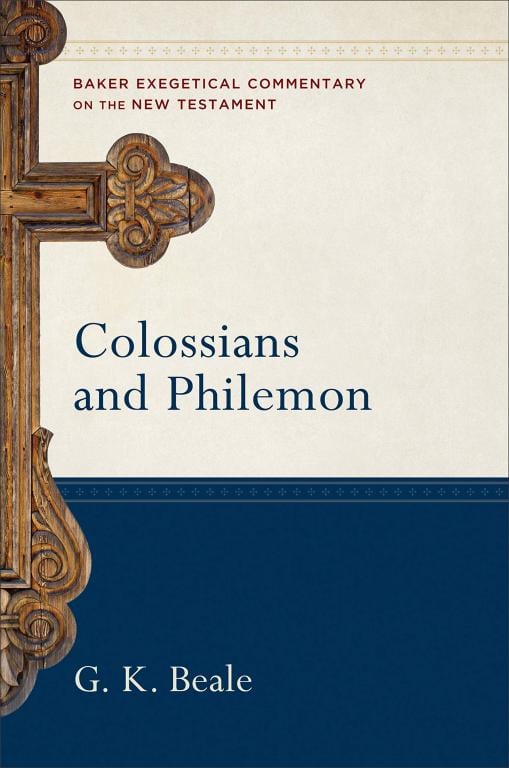 Greg Beale has published a new commentary on Colossians and Philemon in the Baker Exegetical Commentary on the New Testament. My “quick look” will focus on Colossians since I have some background working on that text.
Greg Beale has published a new commentary on Colossians and Philemon in the Baker Exegetical Commentary on the New Testament. My “quick look” will focus on Colossians since I have some background working on that text.
A quick word about the series: it is a solid, exegetical set with mostly conservative evangelical writers. Some of the best volumes, in my opinion, are
Luke and Acts (Bock)
1 Corinthians (Garland)
1-2 Thessalonians (Weima)
The format is relatively standard, but I especially appreciate the section preview or summary at the beginning of every chapter. This helps readers to get a sense for the commentator’s overall orientation or interpretation of the passage. The comentary notes are mostly historical and literary, with some interest in the theological dynamics and implications of the text. Also, the series has a new cover design, which I think is a nice change.
Here’s my quick take on Beale’s work in this specific volume. He has a sharp intellect that he brings to analyzing and weighing the work that other scholars have done. Most of the time, I find his judgments sensible (for example, his caution against over-reading adamic typology in the Christ hymn, 1:15-20). He does not bring much that is “new” to introductory matters like the authorship question (he treats it as genuine) or the situation (he thinks the false teaching blends Jewish and pagan elements).
When I perused his section on the Household Codes (3:18-4:1), I have to say I was disappointed with what I feel is a weakly argued endorsement of male headship. Beale treats the code as theologically “timeless” (and applicable to all cultures). He does so on the basis of the rationales within the code, but he knows this gets messy when it comes to the matter of slavery. In the “preview” section of that chapter, he promises to talk in more detail about how the slavery issue relates to the “timeless” quality of the code, but I never found that later discussion. He says on page 315: “The issue of slavery is more complicated: we will wait to discuss it until the comments on 4:1, where also there will be further discussion of the husband-wife and parent-child relationship.” His 4:1 discussion is on pages 327-329. Here he mostly treats the word “equality” for slaves, which Beale argues does not refer to treating them as absolute equals, but rather equal treatment of all slaves (in that context; see pg. 328). Pages 329-332 contain some “additional notes” (like footnotes) related to 3:18-4:1. While he talks more about Greek words like hypotassō (submit), he does not address the theological questions about gender/marriage and slavery and abolition. This seems a bit uneven because he was quite straightforward about his views on male headship in marriage, but does not relate that to the issue of slavery then and now.
Beale’s commentary is an overall competent work on Colossians and Philemon. It enters a rather crowded library of Colossians commentaries. In recent years we have seen hefty Colossians commentaries from evangelicals such as McKnight (NICNT), Pao (ZECNT), and Moo (Pillar). I think where Beale shines is in the area of biblical theology and the use of the Old Testament in the New.











